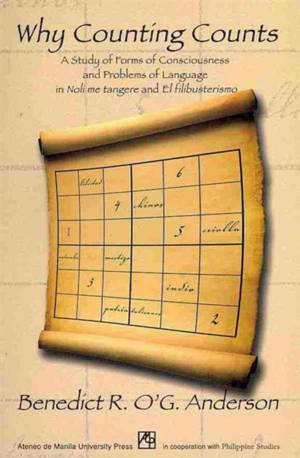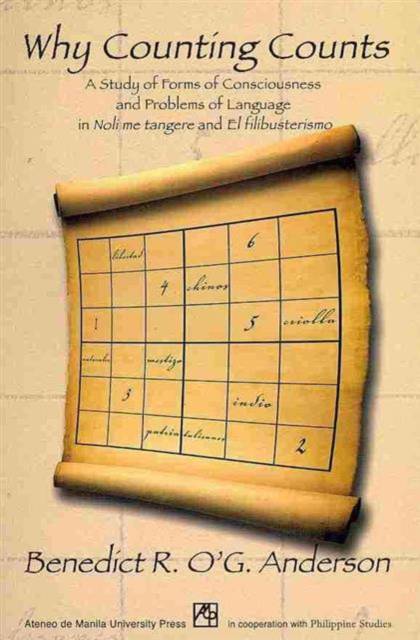
En raison d'une grêve chez bpost, votre commande pourrait être retardée. Vous avez besoin d’un livre rapidement ? Nos magasins vous accueillent à bras ouverts !
- Retrait gratuit dans votre magasin Club
- 7.000.000 titres dans notre catalogue
- Payer en toute sécurité
- Toujours un magasin près de chez vous
En raison de la grêve chez bpost, votre commande pourrait être retardée. Vous avez besoin d’un livre rapidement ? Nos magasins vous accueillent à bras ouverts !
- Retrait gratuit dans votre magasin Club
- 7.000.0000 titres dans notre catalogue
- Payer en toute sécurité
- Toujours un magasin près de chez vous
Why Counting Counts
A Study of Forms of Consciousness and Problems of Language in Noli Me Tangere and El Filibusterismo
Benedict R O'g Anderson
Livre broché | Anglais
31,45 €
+ 62 points
Description
This book examines Jose Rizal's great novels, Noli Me Tangere and El Filibusterismo, through a hitherto untried quantitative analysis of the scope and evolution of their political and social vocabulary, as well as their use of Tagalog and the lengua de Parian. Special attention is given to which characters (including the Narrator) use these terms and languages and with what frequency.
The study aims to throw new light on Rizal's changing political consciousness and use of his native language. The most important questions raised are: the shifting nature of Rizal's intended readership; the geographical location of the birth of a Filipino identity in the modern sense; the odd concealment of the Chinese mestizos combined with a growing hostility to the Chinese as an alien race; the level and ambit of the author's political sophistication; and the complicated relationship between the colonial-international aspects of Spanish, the ethnic-nationalist claims of Tagalog, and the emergence of a democratic cross-class lingua franca, especially in Manila.Spécifications
Parties prenantes
- Auteur(s) :
- Editeur:
Contenu
- Nombre de pages :
- 104
- Langue:
- Anglais
Caractéristiques
- EAN:
- 9789715505550
- Date de parution :
- 31-07-09
- Format:
- Livre broché
- Format numérique:
- Trade paperback (VS)
- Dimensions :
- 150 mm x 224 mm
- Poids :
- 158 g

Les avis
Nous publions uniquement les avis qui respectent les conditions requises. Consultez nos conditions pour les avis.






